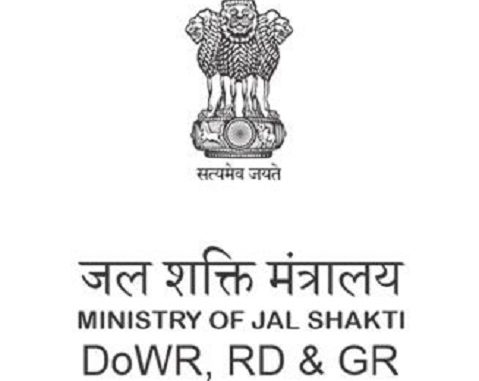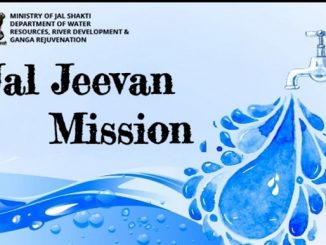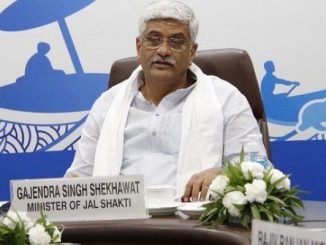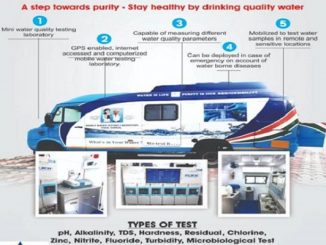
Sep 2: In compliance of the Hon’ble Supreme Court Order dated 3.4.2020 in WP (PIL) No.10808/2020 for ensuring safe drinking water during the lockdown period due to the CoVID-19 pandemic, the Department of Drinking Water & Sanitation (DDWS), Ministry of Jal Shakti had issued an advisory to all States/ UTs on April 13, 2020.
With the lockdown eased out and socio-economic activities resumed, especially with the commencement of post-monsoon working season, the water supply infrastructure activities have to be implemented on a bigger scale and with speed to achieve the goal of providing tap water connections to all rural households. Hence, it is imperative for WASH service providers at the forefront to follow all the necessary precautions to avoid contraction and spread of the virus.
Current evidence indicates that the CoVid-19 virus is transmitted through respiratory droplets or contact, and transmission occurs when contaminated hands touch the mucosa of the mouth, nose, or eyes; the virus can also be transferred from one surface to another by contaminated hands, which facilitates indirect contact transmission. Along with physical distancing, hand hygiene is the most effective single measure to reduce the spread of infections through multimodal strategies, including access to the appropriate supplies.
To ensure hand hygiene is practiced through hand wash at regular intervals, in order to contain the spread of the Corona virus, there is an urgent need to make tap water available inside every rural household premises. For this purpose, adequate fund has been made available under Jal Jeevan Mission. The mission presents an excellent opportunity to mitigate the ongoing pandemic situation not just by ensuring water supply but also by generating employment to labour who have migrated back home.
In this context, this supplementary advisory is issued by DDWS for assured safe water service delivery to every home with focus on various aspects.
Arrange hand-washing equipment: Hand-washing arrangements with soap and water at the entrance of every water supply establishment may be made to allow everyone to practice it before entering and when leaving. Installation, supervision and regular refilling of the hand washing equipment are the overall responsibility of PHE/ RWS Department;
Ensure potable water in quarantine/ isolation centres: Potable water arrangements are to be ensured at all camp sites, schools/ hostels that have been turned into quarantine/ isolation centres. The arrangements may include tanker water supply, providing temporary stand-posts from near-by potable water source, retrofitting/ repairing existing functional infrastructure wherever required, etc.;
Prioritize health care centres and facilities: A quick gap assessment on potable water facilities in health care centres may be undertaken and immediate arrangements may be made to ensure safe and clean water in all health care facilities;
Promote physical distancing of communities while fetching water: Wherever community members fetch water from stand posts, efforts may be made to widely communicate the importance of physical distancing by maintaining 6 feet gap (2 gaj doori), covering their mouth and nose, etc. All persons must wash hands thoroughly before fetching water;
Increase water supply duration: Given the need to practice physical distancing at stand posts, the duration of water supply may be increased for facilitating the same. Announcements may be made to spread awareness on physical distancing norms and increased water supply hours;
Provide personal protective gear to water supply service providers: Provide soaps/ sanitizers, gloves, masks, gumboots, wipes, etc. to all individuals involved in water supply service provision. All the contractors are to be briefed the precautionary measures regularly, if possible through texts or whatsapp, and ensure they make adequate arrangements for all the labour they employ. Posters of the precautions may also be circulated to GPs, water supply establishments, etc.;
Grievance redressal: Toll-free number at district/ state level may be set up (if not existing already) and the number may be widely circulated/ disseminated through social media, FM radio channels and local TV channels. Students/ volunteers from the operational PMKVY centres/ skill development centres, colleges, etc. can be quickly trained online for handling grievance calls and supporting respective district/ state administration; and
Prioritize retrofitting in schools/ anganwadis: Children will eventually return to schools and anganwadis and there is an urgent need for retrofitting of existing water and sanitation infrastructure for ensuring access to potable water and clean toilets. The ‘swachh vidyalaya’ guidelines clarify the norms in terms of requirement. Both, adequacy of the infrastructure and the appropriateness from a hygiene perspective needs to be ensured.
Precautionary measures are recommended particularly for community-level service providers, viz. plumbers, electricians, motor mechanics, sanitation workers, etc. especially when leaving home for work, when at work and when reaching home. States/ UTs have been requested to give wide publicity to the supplementary advisory.
Disclaimer: We donot claim that the images used as part of the news published are always owned by us. From time to time, we use images sourced as part of news or any related images or representations. Kindly take a look at our image usage policy on how we select the image that are used as part of the news.


